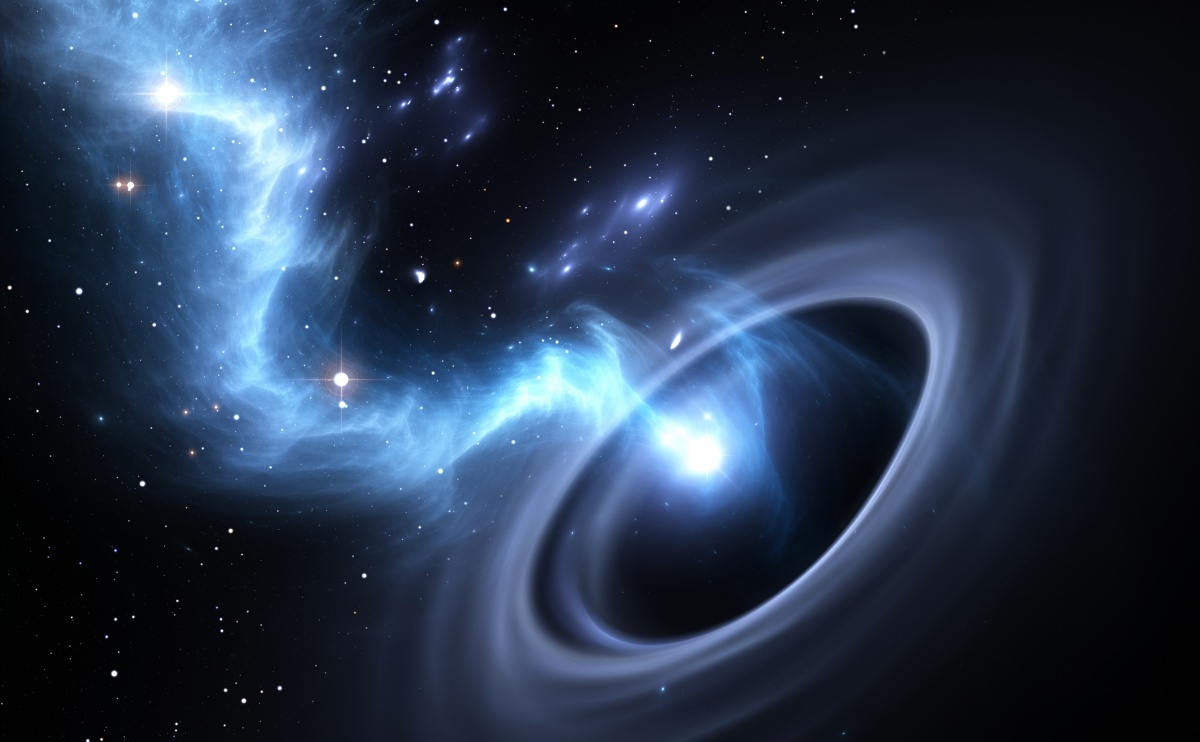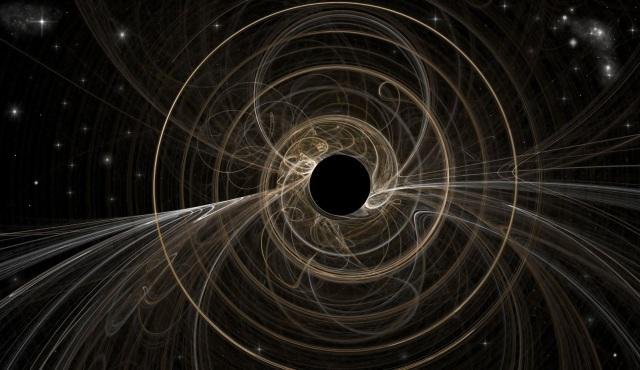Of the many problems that have kept theoretical physicists awake at night for the past few decades, only one has reigned for at least 50 years: the information paradox in black holes.
Officially developed in the mid-1970s with key contributions from the famous British physicist Stephen Hawking, the paradox is a theoretical puzzle that arises when the predictions of quantum mechanics are applied to the general rules of relativity, that is, when two of the theories come together. combined the most successful scientific discoveries in history.
If you don’t remember or don’t know these definitions well, don’t worry, let’s remind you: Quantum mechanics offers the mathematical explanation that we believe underlie all the fundamental physical processes in the nature of the particles that make up matter. ; general relativity is the famous theory discovered by Albert Einstein in which gravity is described as an effect of the curvature of space and time. In short, quantum mechanics describes the micro side of the Universe, while general relativity describes the macro side.
One of the many wonderfully confirmed predictions of the general theory of relativity is the existence of black holes: regions in space-time from which absolutely nothing, not even light, can escape. This category of astronomical objects usually consists of the collapse of the cores of extremely massive stars and has such extreme properties that they produce the presence of a singularity in its interior, a point that does not obey any of the known laws of physics. .

The problem with black holes is the information they contain: if you throw an object into it, you will never see it again, if you jump on one, you will never get out. Even the merger of two black holes cannot be undone, you cannot separate them again. But the truth is, the object fell, you jumped, and the two black holes merged, right? It is impossible to say what happened to someone observing the black hole from a safe distance after these events took place. Black holes don’t seem to hide any information.
In the Universe described by our scientific laws, this information is certain measurable physical properties of matter and energy. For example, a molecule or particle, such as a proton or an electron, contains a mass value, an electric charge, a spin, and some other quantum properties (number of baryons, leptons, supercharges, etc.). So, assuming that a black hole “absorbs” a certain amount of matter and energy over time, and that it is also composed of a set of particles with unique properties, it is reasonable to conclude that a black hole contains. substantial amount of information.

The question then is: where did all this information go? Theoretically, a black hole formed from the collapse of a normal star should have completely different encoded information (assuming it’s possible) than, say, a black hole formed from the collapse of an antimatter star. However, there is no way to distinguish them.
The first part of the paradox lies in this fact: if information is lost, it violates quantum theory. The second chapter came when Stephen Hawking applied the rules of quantum mechanics to black holes and discovered that these isolated systems would emit a form of radiation called Hawking radiation, which would be independent of and only dependent on the initial state of the black hole. mass, electric charge and angular momentum.
The information paradox, then, can be simply explained and reduced in the following terms: If we consider a black hole formed by known physical processes, nothing comes out of it, but information is expected to be stored inside it. somehow. A paradox arises if information is not preserved or evaporates entirely through Hawking radiation.
In recent years, various hypotheses have been put forward to resolve the information paradox in black holes and their extensions. Most of these hypotheses are based on calculations derived from string theory, the main candidate for a unified theory of nature, and claim that information really escaped a black hole. According to one, for example, if you jump into a black hole, you won’t necessarily be gone forever; instead, your body’s knowledge may come forth in bits and pieces to reconstruct you.
Physicists expect a definitive answer to this paradox to emerge shortly in the next few years. Until then, the study of these and other exotic features of nature will certainly continue to push the limits of human knowledge further, towards the end of the Universe.
Source: Tec Mundo
I’m Blaine Morgan, an experienced journalist and writer with over 8 years of experience in the tech industry. My expertise lies in writing about technology news and trends, covering everything from cutting-edge gadgets to emerging software developments. I’ve written for several leading publications including Gadget Onus where I am an author.













